Driving innovation for a more sustainable and equitable world

Climate action
By the end of 2030, we will reduce our Scope 1 and 2 emissions to near zero and reduce our Scope 3 emissions by 50% compared to 2021.
Creating a better future for our planet and society requires a different approach to solving big challenges without creating new ones. Discover how we deliberately push boundaries with intent to drive design-led innovation at scale.
We are intentional about designing at the intersection of analytics and aesthetics to reduce carbon and enhance circularity.
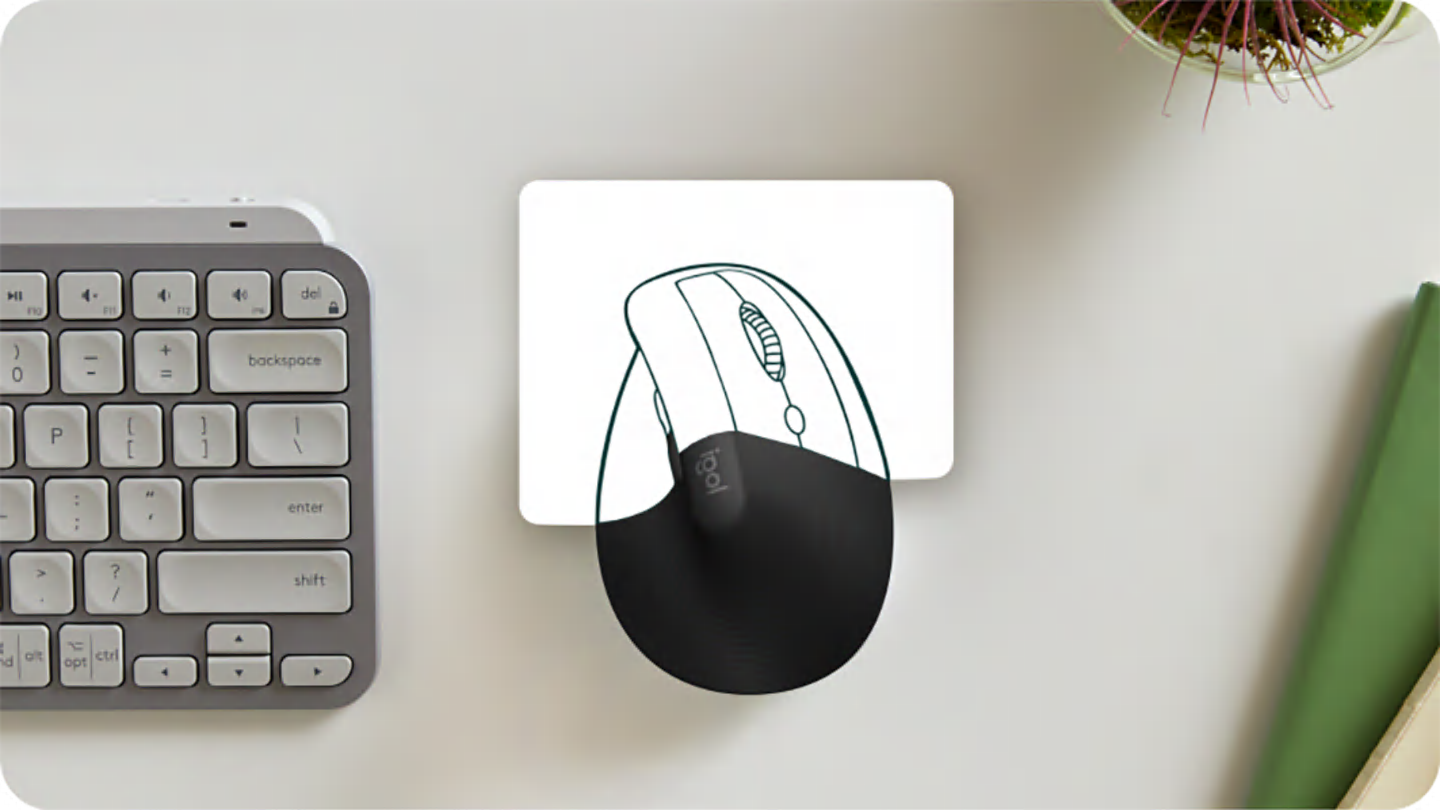
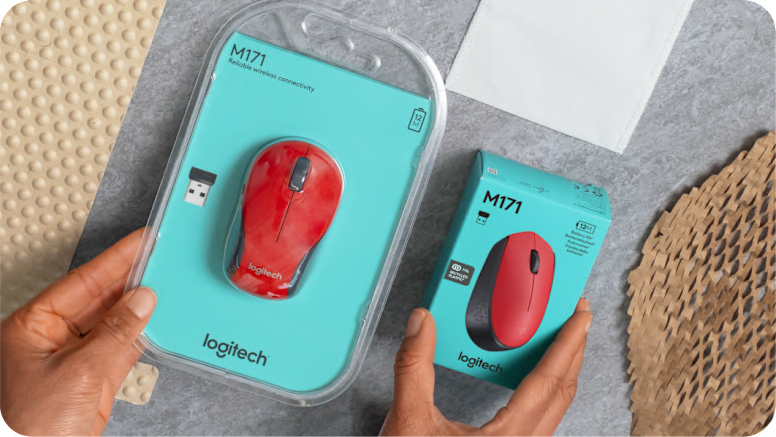
Design with less
Every choice we make is working to improve our impact, use less energy, and cut out waste. We’re removing single-use plastic from packaging, minimizing components like cables and dongles, and manufacturing with renewable energy when possible.
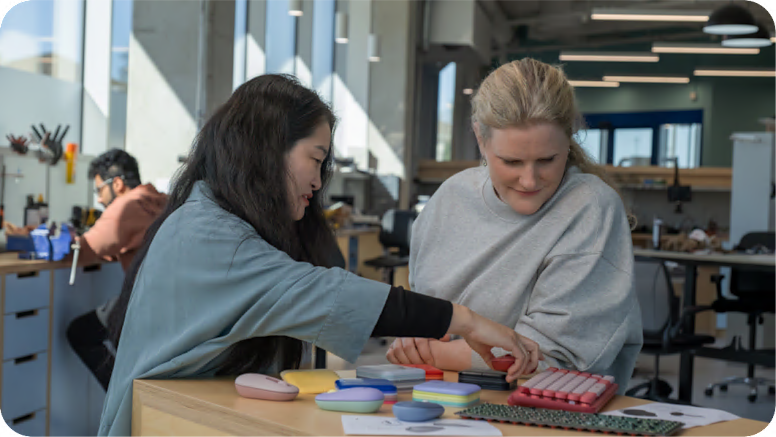
Design smarter
We constantly explore new ways to make more sustainable options possible. Taking an extensive approach to innovation includes scalable, continuous improvements on existing products and bold, disruptive technologies to improve the way work is done.

Design to endure
Focused on longevity, we manufacture quality products made to last. Whenever possible, we choose materials and components that are more easily separated, easier to repair, and easier to recycle in community facilities. Taking back older devices for reuse or proper recycling keeps materials out of landfills.
We prioritize absolute carbon reductions, look for ways to enhance circular solutions, and track progress across our business initiatives.

By the end of 2030, we will reduce our Scope 1 and 2 emissions to near zero and reduce our Scope 3 emissions by 50% compared to 2021.
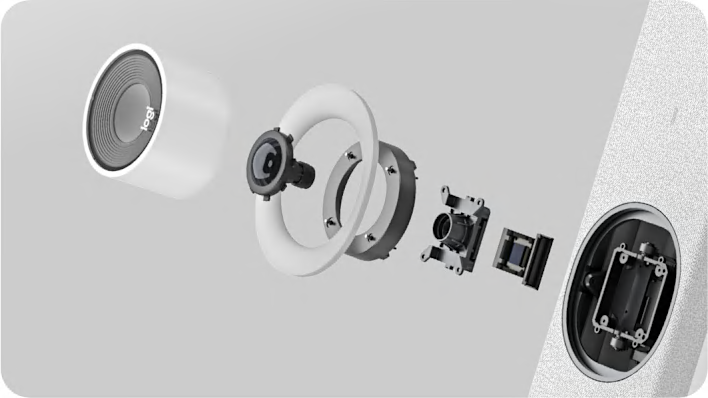
We leverage the power of design to spur innovation and scale progress. The biggest opportunity to reduce environmental impacts is early in the design process when key decisions about a product are made and carbon emissions can be avoided.
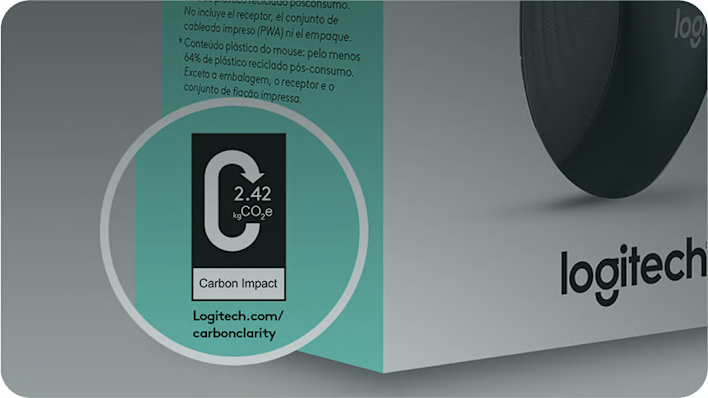
Carbon is the new calorie - As of April 2025, 84% of our products are carbon labeled. We are transparent about the full scope of our impact and hold ourselves accountable for reducing it.
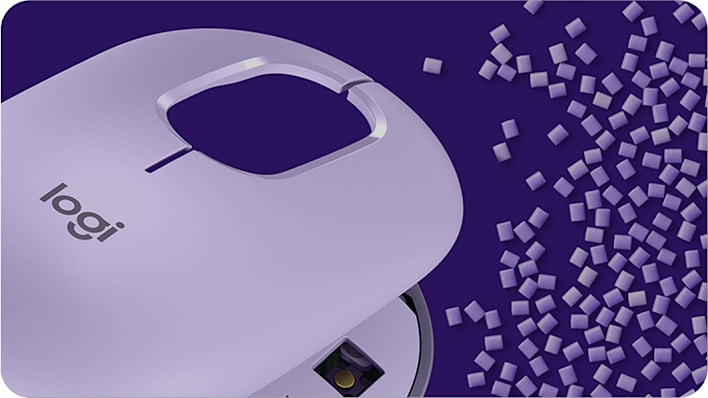
Post-consumer recycled plastic is used across a broad range of products. Today, nearly 80% of Logitech products use Next Life Plastics, contributing meaningfully to Logitech’s carbon reduction pathway.

Our global technology and engineering challenge for disruptors in the electronics industry searches for breakthrough ideas and processes to accelerate innovative solutions. Meet the award recipients and learn how we partner with them.
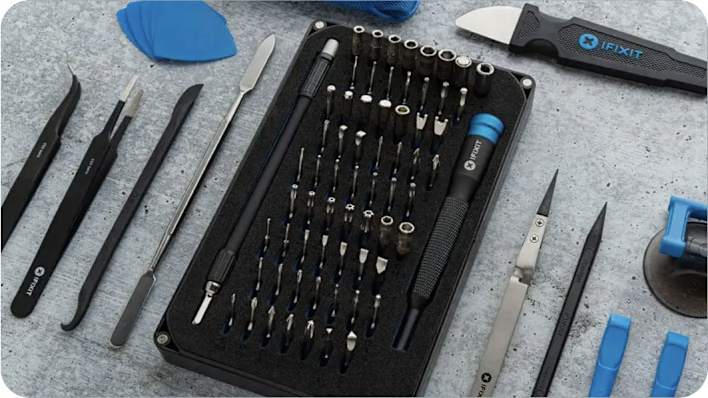
Logitech and iFixit make it easier for people to repair their Logitech devices and keep them longer. Original manufacturer spare parts and quality step-by-step instruction guides are available in multiple languages and 60+ countries.
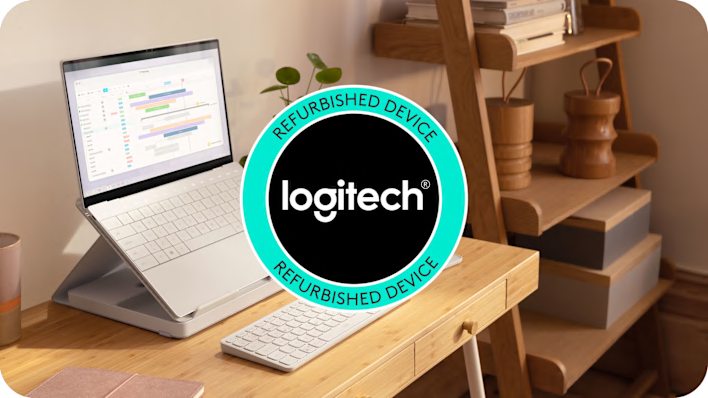
Extending product life means keeping products in demand for a longer period. Logitech refurbished products undergo rigorous testing and quality checks and are fully restored to deliver an exceptional experience.
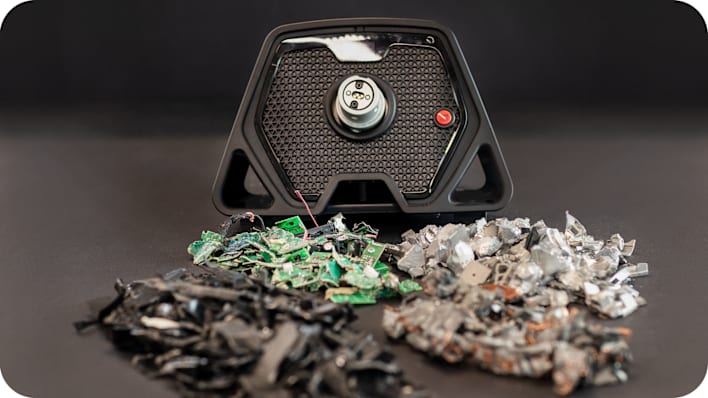
Logitech works with recycling programs, partners, and retailers to make sure Logitech devices are recycled responsibly. We fund recycling systems and work with in-country distributors to support local programs.
We partner to advance inclusion in both digital and offline communities, through our products, practices, and programs. We are passionate advocates for representation, building positive opportunities for all.

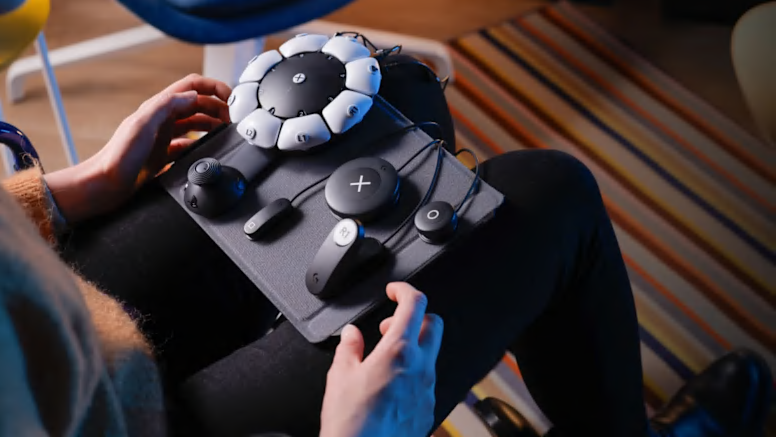
Design for access
We actively foster spaces and experiences that promote equitable participation. Logitech’s culture strives for fair access, opportunity, and appreciates the way people stand out.

Design for every body
We create solutions that are intuitive and adaptive to fit people of all sizes and abilities. Insights teach us how to improve traditional product development methods to serve each person’s unique needs.
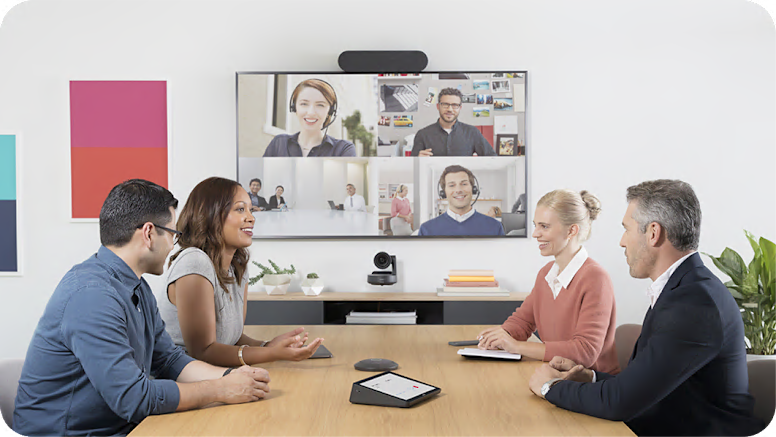
Design for each and all
By appreciating the ways people stand out, we drive better innovation. We break barriers whether it’s encouraging inclusive STEM education or promoting equitable representation in meeting rooms through inclusive design.
We aim to truly understand the needs of different stakeholders, build inclusive innovation processes, and engage with various partners to extend human potential.
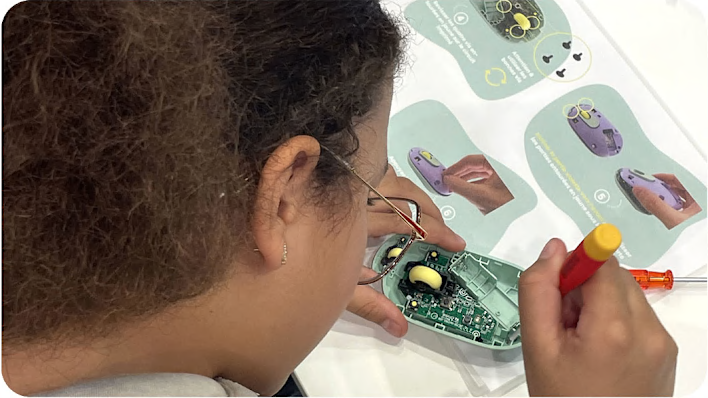
If we inspire girls, we inspire change. By exposing girls to role models in science, technology, engineering, and mathematics, it will bring us one step closer to closing the gender gap in tech.

We bring together people with different perspectives, skills, and ideas to drive innovation. We value and celebrate our breadth of cultures and backgrounds, and recognize that great ideas come from us all.
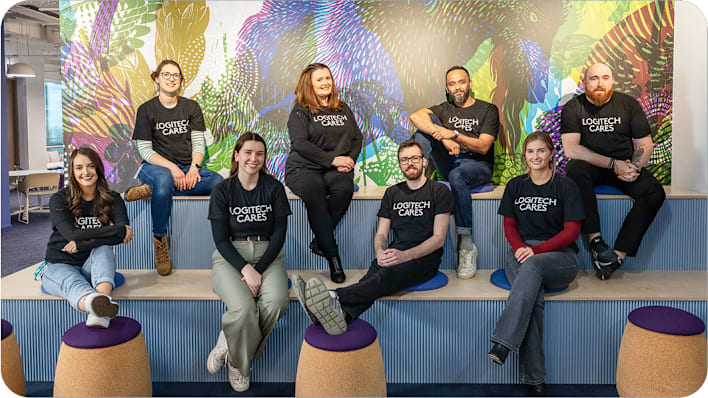
Giving back is a fundamental part of our culture. LogiCares creates opportunities for our employees to give back to the communities where we live.
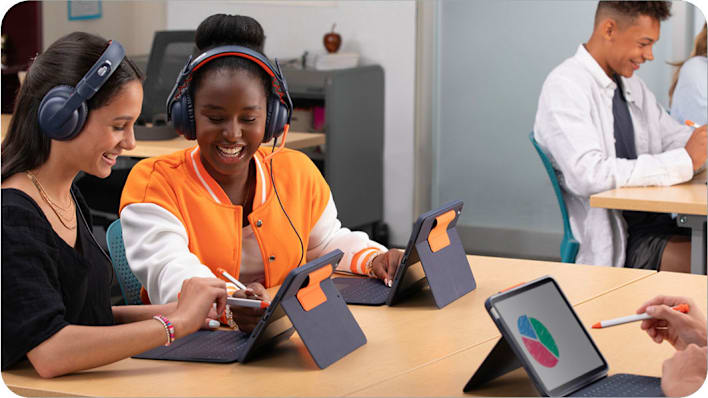
Creating solutions and experiences for everyone ensures a more equitable, accessible, and inclusive digital environment. Everyone should have a learning space that allows them to see and hear information.
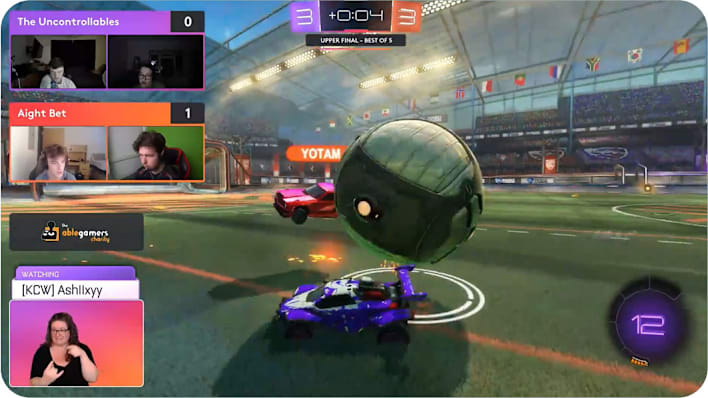
Our partnerships with Mount Sinai Hospitals, The AbleGamers Charity, and Adaptive Action Sports provides gamers with disabilities professional esports opportunities and support.

Logitech donates ‘open-box’ products to qualifying charities and educational institutions. Fully functional products from Logitech G, ASTRO Gaming, and personal workspace and streaming lines help schoolchildren in underserved areas.

Logitech supports a Social Media Safety Program in collaboration with the non-profit organization GLAAD. The program establishes standards to combat online hate and intolerance, particularly towards LGBTQIA+ individuals, and promotes equity and acceptance in the gaming industry through GLAAD Gaming.
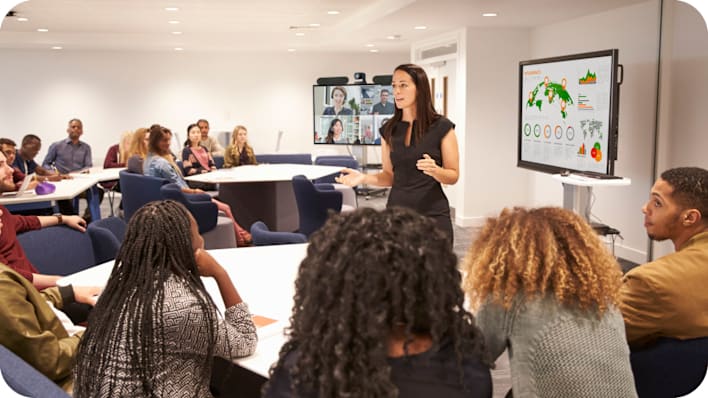
We conduct an annual review of compensation worldwide to help ensure we pay fairly and to eliminate gender, racial, and other discrimination in the workplace. In compliance with reporting requirements, we publish relevant results.
We are focused on prioritizing forward-thinking business practices, living our values, and ethically championing our commitments.

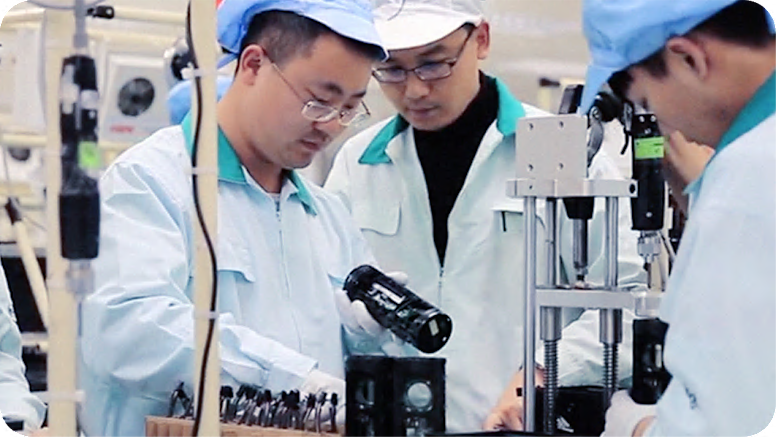
Design for progress
Our collective values build momentum toward productive change, bringing our communities and industry along. We encourage collaboration on methodologies to help advance individual and collective goals.
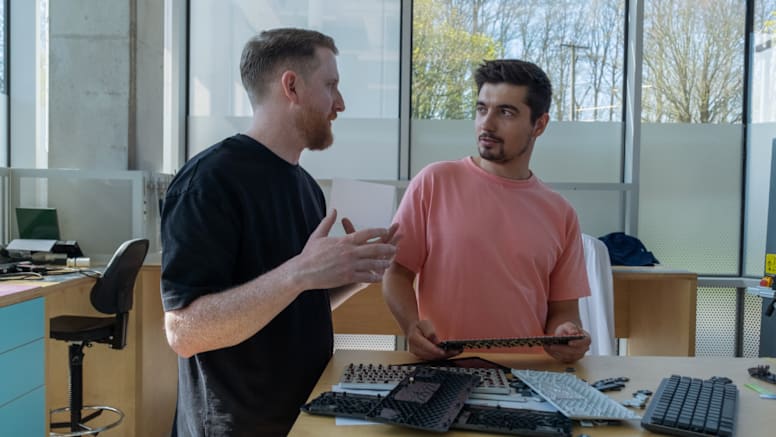
Design with transparency
We hold ourselves to the industry’s highest environmental, social, and governance standards. We are aligned with a comprehensive set of leading global frameworks, reporting standards, policies and codified ethics criteria.
We build trust, accountability, and credibility by being candid about our impact, progress, and goals.

By the end of 2030, we will reduce our Scope 1 and 2 emissions to near zero and reduce our Scope 3 emissions by more than half.
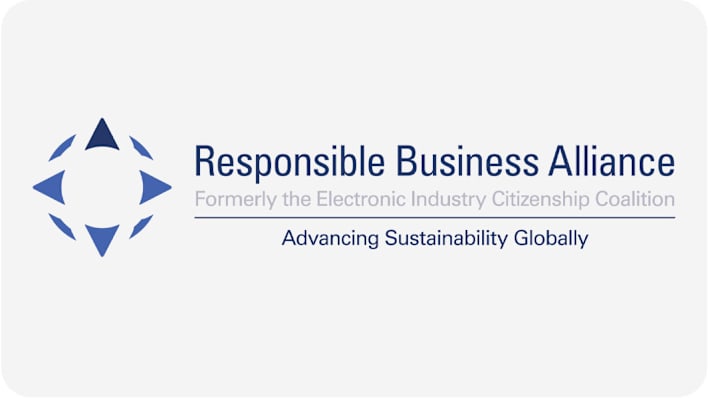
Commitment to the Responsible Business Alliance (RBA) Code of Conduct drives our business strategy and informs our decision-making. It is reflected in our internal policy framework, standards, audit processes, and supplier contracts.
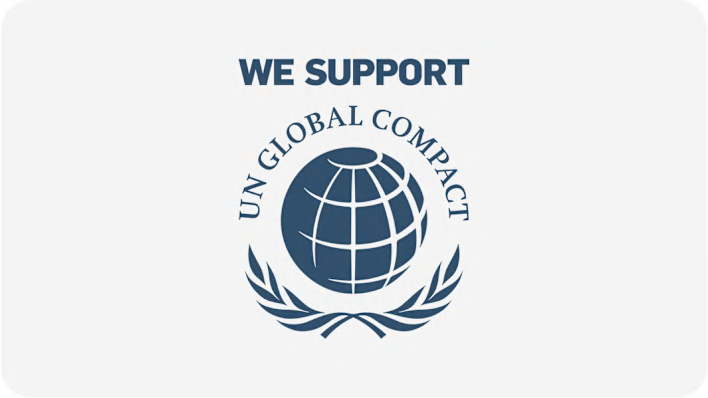
We support the Ten Principles of the United Nations Global Compact (UNGC) on human rights, labor, environment, and anti-corruption. We engage in collaborative projects to advance broader development goals, including the Sustainable Development Goals.
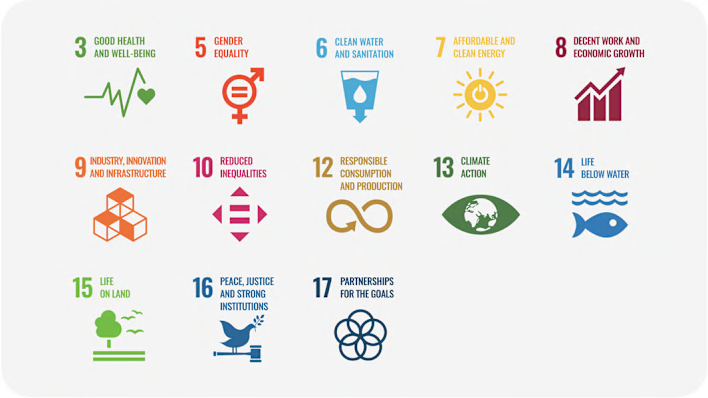
We recognize the need for real and authentic leadership to deliver on the United Nations Sustainable Development Goals (SDGs). We have identified 13 SDGs we believe we can significantly and positively impact.